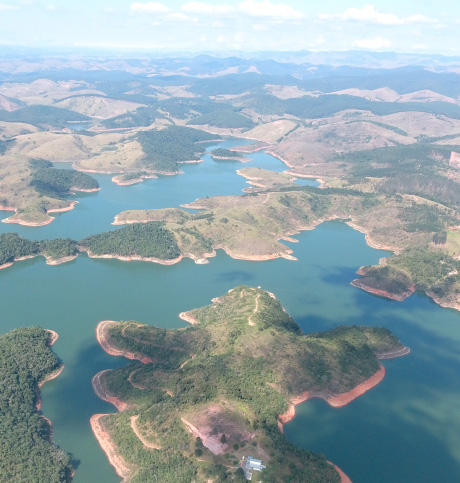Sustainable management
Social and Environmental Performance
Incorporation of sustainability into company strategy
Avibras is increasingly focused on sustainability. We value growth oriented to ethical conduct and transparency, caring for the environment and for people.
We generate shared value for all our stakeholder groups. Dialogue breeds successful initiatives aimed at meeting society's needs today and in the future.
The restructuring of company governance and management, with the institution of the Sustainability Committee provides for the implantation of tools to measure, monitor and improve results in the economic, environmental and social dimensions.
Managing for Sustainability
The Sustainability Committee is Avibras's main social and environmental management body, supporting the company's governance and administration. (further information in Corporate Governance - Organization and Management Mechanisms).
Its role is to disseminate and reinforce the concept of sustainability among the company's stakeholders and to recommend and formulate actions and measures that foment sustainability strategies. Another attribution is to establish corporate guidelines and actions, as well as reconciling economic development with social and environmental responsibility measures, incorporating them into strategic planning.
The committee also has the function of mapping the sustainability performance indicators in existence in the company and proposing improvements based on the data measured.
The sustainability committee is chaired by the CEO of the company. He is the sponsor, with responsibility for decision making and delegation of attributions to the committee.
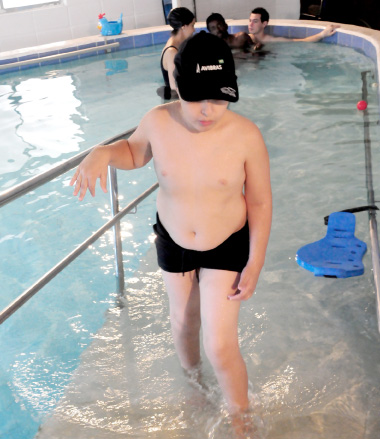
Focused on social responsibility, Avibras supports and incentivizes projects that benefit the community
Society
G4-SO1, G4-EC8We share value by reconciling questions of economic development with social and environmental responsibility
Avibras's behavior is just as important as its economic performance and its products. Social responsibility measures are integrated into the company's strategy and mission.
In line with this directive, the company has been preparing the resumption of the activities of the Fundação Avibras. In the 1980s, driven by the dream of Avibras's founder, João Verdi Carvalho Leite, the
Fundação Avibras played an important social role in Brazil, providing underprivileged youngsters with quality education and a moral and professional formation based on the motto “Education and Work”.
The foundation's objective has always been to increase the company's participation in the community life of São José dos Campos and region, providing young people with quality education, qualifications and a start in their professional life. This led to a project to provide gifted but underprivileged young people aged fourteen and over with study scholarships.
So far more than 300 people have benefited. Today these are highly trained professionals working in the most diverse areas of knowledge.
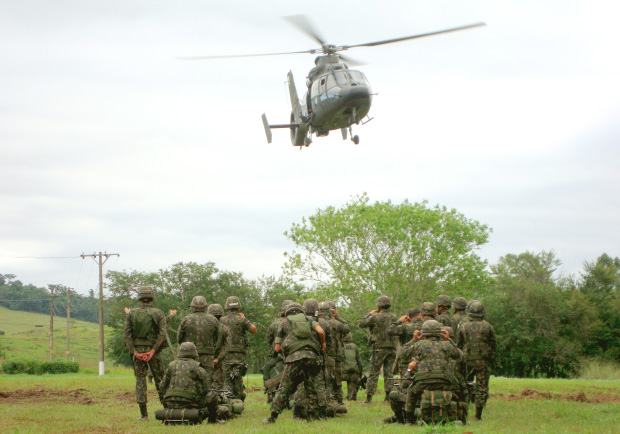
The Avibras Lorena Installation opened its premises for the Brazilian army to carry out the Contingency Security Exercise for the Olympic and Paralympic Games held in Rio de Janeiro in 2016
Community actions
G4-SO1We promote development with education, health and security projects.
More than just investing in social actions, corporate social responsibility is an opportunity to demonstrate the company's cultural and ethical values to its internal and external audiences.
Although there is not yet a formal process for investing in social actions, relationship with society is part of the organization's growth strategy.
Avibras in Rinem - Avibras is a founder and one of the 40 companies that participate in the Vale do Ribeiro and North Coast Integrated Emergency Network. Rinem has a system with 102 points of exclusive radio communication uniting private companies, hospitals and public authorities in an initiative dedicated to saving lives.
The objective is to develop and implement integrated projects, programs and activities aimed at preventing, combating and controlling any kind of incident that puts human life, the environment and public and private property at risk in the region.
Third Sector – The Jacareí-based non-profit association Cepac, which provides services for persons with neurological disabilities (physical, intellectual, hearing, visual, multiple disabilities, syndromes and autism) and their families benefited from the donation of a heat exchanger which is essential for heating the pools in which the beneficiaries undergo therapy.
The company has also been providing the organization with support by publicizing its charity events in its communication media.
The company donated food for the preparation of the main dish in the Jambeiro Tropeiro Festival.
Community involvement - Avibras frequently permits the Brazilian army, the Federal Police, Fire Brigade and Military Police and other organizations to use its Lorena facility for training activities.
In 2016, the facility opened its gates for the Army to hold the Contingency Security Exercise for the Rio de Janeiro Olympic and Paralympic Games. This involved training which was fundamental to guarantee security at one of the most important sporting events in the world calendar.
The installation was also used for practical exercises in the 2016 Drought Operation Preparatory Workshop aimed at training Civil Defense and Security agents to handle emergencies and disasters, particularly those involving forest fires.
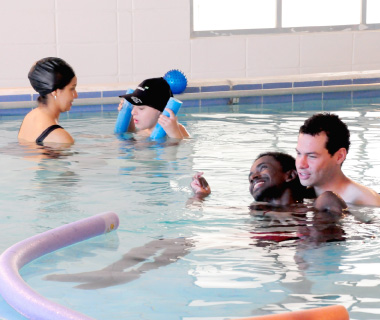
The heat exchanger donated by Avibras to Cepac enables hydrotherapy for patients with neurological disorders
Learning in industry: young people have the opportunity to apply concepts learned in the classroom as interns in the company
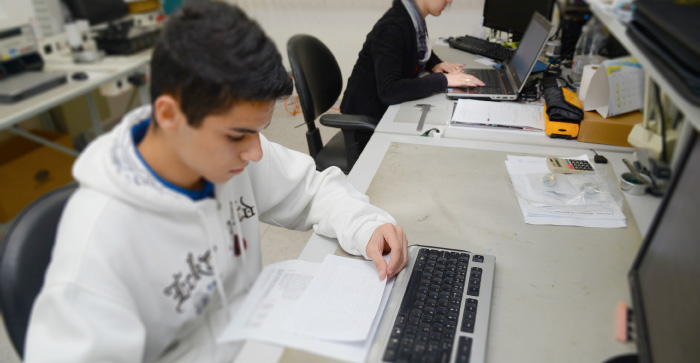
Young people in the labor market - Avibras provides opportunities for young people to begin their career through the Learning in Industry Program. This is a partnership with the national industry service Senai in which young people aged between 14 and 24 years apply the knowledge acquired in the classroom in industry during their internship.
Abandon the book, adopt reading
On its premises Avibras has permanent areas called cultural points for the receipt of books and magazines which are made available to anyone who wants them.
This material is there for anyone who is interested in reading. Residential condominiums, schools, and stores may also participate in the campaign by becoming cultural points.
Targets
Avibras has the following targets for its social actions in 2017:
Support for the third sector – increase donations to philanthropic institutions located in the cities in which Avibras operates.
Young people in the labor market – boost the number of young people benefiting from the Learning in Industry Program.
Incentive for reading project – to extend this permanent campaign to the municipal infant school located near Installation 2 in Jacareí.
Community involvement – Avibras will continue to open its gates, in particular Installation 3 in Lorena, for training exercises and workshops for public bodies such as the Army, Military Police, Fire Brigade, among others, reinforcing its support for community activities.
Evolution of community engagement activities
| By operation | 2016 | 2015 | 2014 |
|---|---|---|---|
| Total company operations | 3 | 3 | 3 |
| Company operations that implemented community engagement programs | 2 | 2 | 2 |
| Percentage of company operations that implemented community engagement programs | 66.67% | 66.67% | 66.67% |
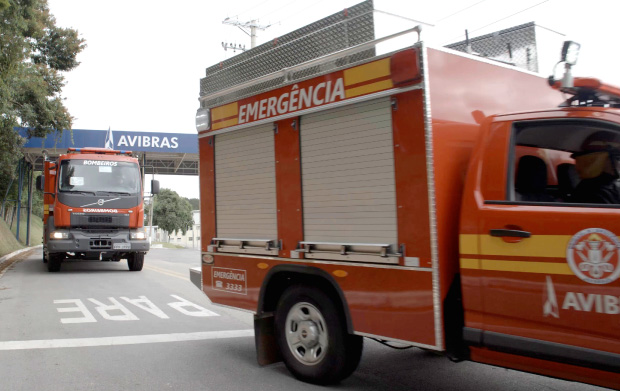
Avibras infrastructure at the service of the community in the Rinem program
Environment
G4-EN31Environmental practices at Avibras are focused on sustainable development and compliance with environmental legislation, with a management system based on NBR ISO 14001:2004 standard requirements.
Promoting employee awareness and development regarding environmental questions, so that they comply with and improve the system is one of the key ways in which the organization drives the continuous improvement of its environmental performance.
The Environmental Engineering area provides the Executive Board with support in addressing environmental questions and ensuring compliance with applicable legislation. The area has an environmental management budget which, among other things, covers manpower, mandatory charges, licensing, water analyses, effluents and waste.
Waste management
One of the key focuses in environmental management at Avibras is the final disposal of waste. Special attention is paid to hazardous waste. This was reinforced in 2016 with the implementation of the Total Waste Management project, which entailed the implantation of a waste center and selective collection bins for recyclable and non-recyclable materials. The objective is to reduce the generation of garbage and, whenever possible, commercialize materials in order to eliminate waste, reduce costs and increase the company's productivity.
| Environmental costs (R$) | 2016 | 2015 | 2014 |
|---|---|---|---|
| Destination | 1,412,202.44 | 926,561.02 | 723,588.62 |
| Waste treatment and disposal1 | 1,283,057.85 | 801,121.85 | 711,561.03 |
| Emissions treatment (e,g,: spending on filters, agents) | 129,144.59 | 125,439.17 | 12,027.59 |
| Prevention and environmental management | 607,836.60 | 1,127,162.27 | 501,417.10 |
| Addition expenses for installation of cleaner technologies (ex,: additional costs beyond standard technologies) | 150,000.00 | 450,506.12 | 170,000.00 |
| Other environmental management costs2 | 457,836.60 | 676,656.15 | 331,417.10 |
| Total3 | 2,020,039.04 | 2,053,723.29 | 1,225,005.72 |
1. The fluctuation in the costs of treating and disposing of waste is a result of the quantity generated. The higher the production, the higher the volume of waste generated, driving higher treatment and disposal costs.
2. The fluctuation in “Other environmental management costs” is linked with variations in the cost of labor, expenditure on chemical analyses, licensing needs, variations in charges, environmental compensation, etc.
3. All the spending on environmental protection by the organization, or in its name, is aimed at preventing, reducing, controlling and documenting environmental aspects, impacts and risks. This also includes spending on disposal, treatment, sanitation and cleaning.
Disposal involves special procedures ranging from generation to final disposal. The company has CADRI waste disposal certification issued by the São Paulo environmental authority Cetesb.
Employees receive guidance on how to minimize waste generation and to decrease the pollution potential of waste, aimed at mitigating impacts on the environment and human health.
In 2016, Avibras initiated a study to enable selective garbage collection in its offices. The goal is to reduce waste disposed of in landfills, to encourage recycling and to raise employee awareness.
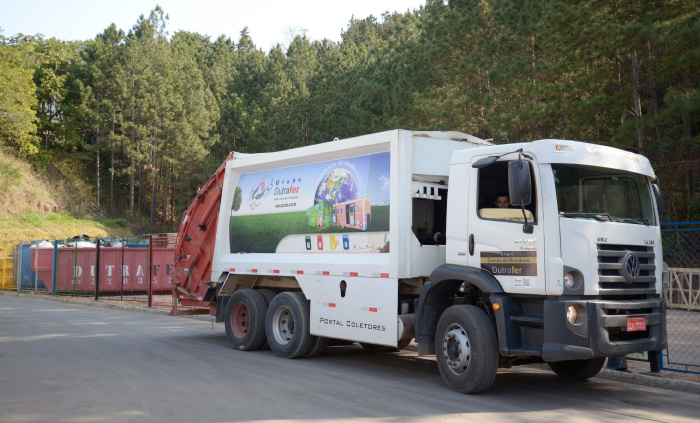
Biodiversity
The main Avibras manufacturing units are located in ecologically privileged areas. The company seeks to preserve and restore its protected areas designated as Legal Reserves and Permanent Protection Areas (APP).
Installation 2 in Jacareí occupies an area of 2,718,870 square meters. Of this area, 447,290 square meters is designated as a permanent protection area and 587,661 square meters constitute the legal reserve area. A major part of Avibras's manufacturing facility borders on the Santa Branca reservoir, an area with a number of springs and a wide variety of fauna and flora, including various species threatened with extinction.
In Lorena, Installation 3 occupies and area of over 9,722,399 square meters, of which 2,113,822 square meters is permanent protection area and 2,359,182 square meters is legal reserve. These areas are home to various species of fauna, and its lakes are rich in fish.
Avibras also has a 17,922,810 square meter area in Ubatuba, on the north coast of the state of São Paulo, of which 17,610,410 square meters constitute a permanent preservation area
